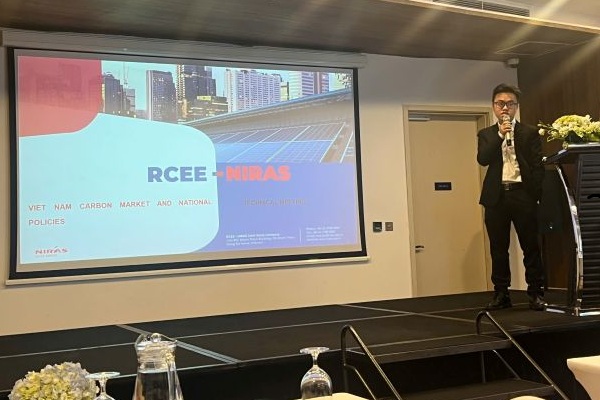Feasibility Study on Rooftop Solar and Energy Storage Systems at Fishing Ports under Vietnam–Korea Article 6.2 Cooperation
A feasibility study evaluates the potential of solar power and energy storage at Vietnamese fishing ports, focusing on technical, economic, legal aspects, and international carbon credit mechanisms.
Fishing
ports in Vietnam currently consume large amounts of electricity from the
national grid or diesel generators to power unloading, cold storage, and
seafood processing activities. Amid rising energy costs and increasing pressure
to reduce greenhouse gas (GHG) emissions under international climate
commitments, there is a growing need for clean, reliable, and sustainable
energy solutions for port infrastructure. Rooftop solar and battery energy
storage systems are emerging as promising options—especially when linked with
carbon credit mechanisms to attract climate finance.
A feasibility study is currently underway to evaluate the potential for
rooftop solar power and energy storage systems at six fishing ports across the
country. These ports are currently undergoing upgrades, construction, and
expansion within the context of the Fishing Port Upgrade Project, which is
funded by the WB. The project’s owner is the Ministry of Agriculture and
Environment.
The study will analyze technical, economic, and legal aspects to determine
the feasibility of future implementation. RCEE-NIRAS is participating as a
technical consultant for content related to internationally transferred
mitigation outcomes (ITMO). It will also review the legal framework and assess
the possibility of establishing an ITMO in accordance with Article 6.2.
By
generating internationally transferable mitigation results, the study
contributes to Vietnam’s target of reducing emissions by 15.8% by 2030 under
its Nationally Determined Contribution (NDC), while also supporting South
Korea’s ambition to cut emissions by 40% from 2018 levels. This collaboration
marks a concrete step in advancing bilateral climate action, opening new
opportunities to mobilize carbon finance for the fisheries sector and promoting
renewable energy solutions in support of Vietnam’s net-zero by 2050 vision.

 English
English  Tiếng Việt
Tiếng Việt 